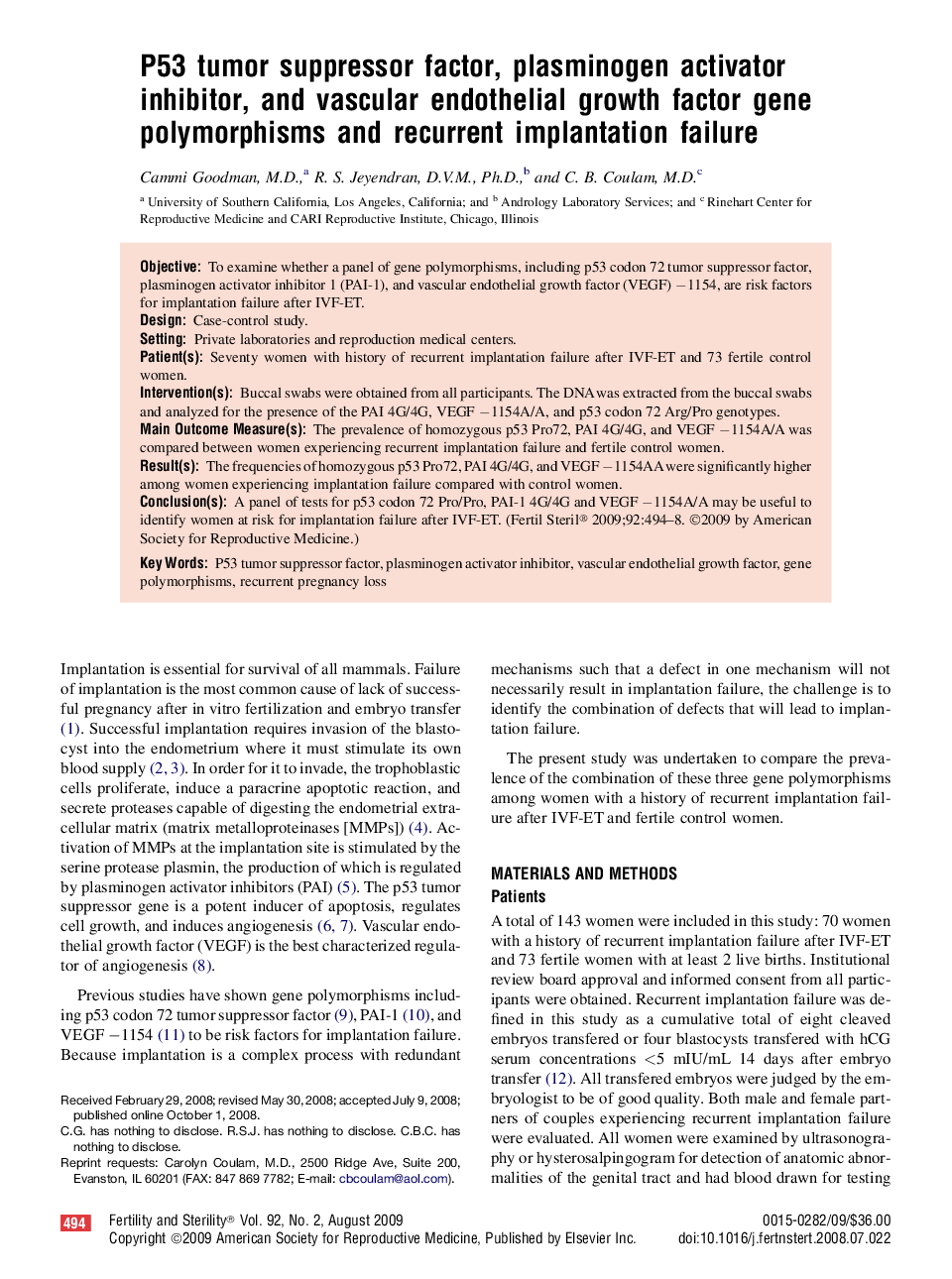| Article ID | Journal | Published Year | Pages | File Type |
|---|---|---|---|---|
| 3934120 | Fertility and Sterility | 2009 | 5 Pages |
ObjectiveTo examine whether a panel of gene polymorphisms, including p53 codon 72 tumor suppressor factor, plasminogen activator inhibitor 1 (PAI-1), and vascular endothelial growth factor (VEGF) −1154, are risk factors for implantation failure after IVF-ET.DesignCase-control study.SettingPrivate laboratories and reproduction medical centers.Patient(s)Seventy women with history of recurrent implantation failure after IVF-ET and 73 fertile control women.Intervention(s)Buccal swabs were obtained from all participants. The DNA was extracted from the buccal swabs and analyzed for the presence of the PAI 4G/4G, VEGF −1154A/A, and p53 codon 72 Arg/Pro genotypes.Main Outcome Measure(s)The prevalence of homozygous p53 Pro72, PAI 4G/4G, and VEGF −1154A/A was compared between women experiencing recurrent implantation failure and fertile control women.Result(s)The frequencies of homozygous p53 Pro72, PAI 4G/4G, and VEGF −1154AA were significantly higher among women experiencing implantation failure compared with control women.Conclusion(s)A panel of tests for p53 codon 72 Pro/Pro, PAI-1 4G/4G and VEGF −1154A/A may be useful to identify women at risk for implantation failure after IVF-ET.
